The Symbolism In the Sanctuary
First Cross
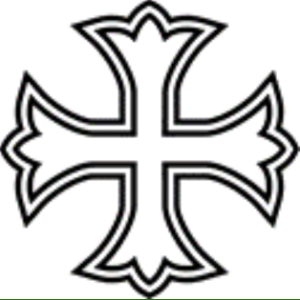
This cross is actually a Trefflee cross which is a variation of the Botonnee cross. This comes from the French word Botany, meaning a budding cross. The original Botonnee cross had four arms with the lower arm being longer than the upper three. The three budded ends of the arms indicate the Holy Trinity. These crosses were used on coats of arms, shields and breastplates. Today they are quite often seen inscribed on Bibles and Christian literature.
Second Cross
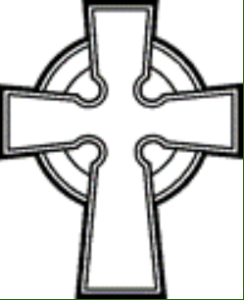
A Celtic cross. It is typically an Irish cross and was devised by the Celts that came to Ireland during their invasion of the land and subsequent conversion to Christianity. It is commonly found in graveyards and in the front of many of the churches as well as along the highways as a marker. The center of the cross has a circle to indicate the circle of life. Many are inscribed or decorated with flowers of designs. A few still can be found with the life of Christ inscribed.
Third Cross
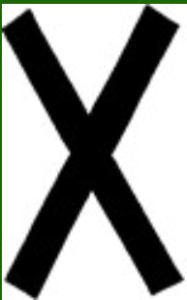
The St. Andrew cross, so called because it was the type of cross he requested for his crucifixion. He did not feel worthy to be crucified on a cross like that used for Jesus Christ. It is in the form of an X and has within its arms two fish and five loaves. Andrew was the first disciple to be called and was the one that brought the fish and loaves to the Lord to feed the 5,000.
Fourth & Fifth Cross
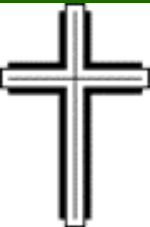
These two crosses are the most typical cross of today and are known as the Latin crosses. They typically have the three equal upper arms and the longer bottom arm. This was the cross that our Lord was crucified upon.
Six Cross
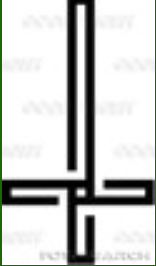
St. Peter cross. St. Peter felt unworthy to be crucified on a cross like that of Christ so he requested that his cross be upside down. The cross has within its intersection a cock to indicate the time that Peter denied Christ three times and the cock crowed.
Seventh Cross
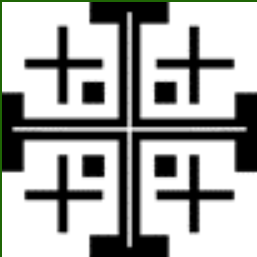
Commonly called the Crusader cross or the Jerusalem cross. It was called the Crusader cross because four countries sent crusades to the Holy Land to conquer Jerusalem. The four countries were England, France, Spain and Italy. Today it has taken on the meaning as one who would crusade for the Christian faith. It is called the Jerusalem cross because the center cross stands for the city of Jerusalem.
Eighth Cross
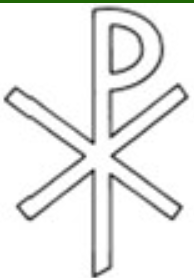
It is called the Chi Rho cross or the Constantine cross. It is one of the most ancient crosses and was first used by Constantine, Emperor of the Roman Empire. He is said to have had a vision of it before the battle for Milvian bridge in Rome, which he won. The Roman Senate was against any form of the typical Latin cross so Constantine used the first two Greek letters, “X” for Chi and “P” for Rho, of Christ’s name to form his cross. It has been used down through the ages and has become known as the Chi Rho cross.
Three Crosses On the Pulpit
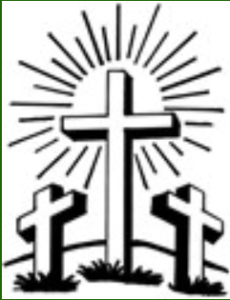
The three crosses are represented by the middle cross which is made of Red Oak and is stained red to indicate the blood of Jesus the Christ. The lighter cross on the right is Ash and is to indicate the thief who asked the Lord to remember him. The third cross is made of Hickory and indicates the thief who cursed the Lord. These three crosses can be found on either side of the Pulpit.
